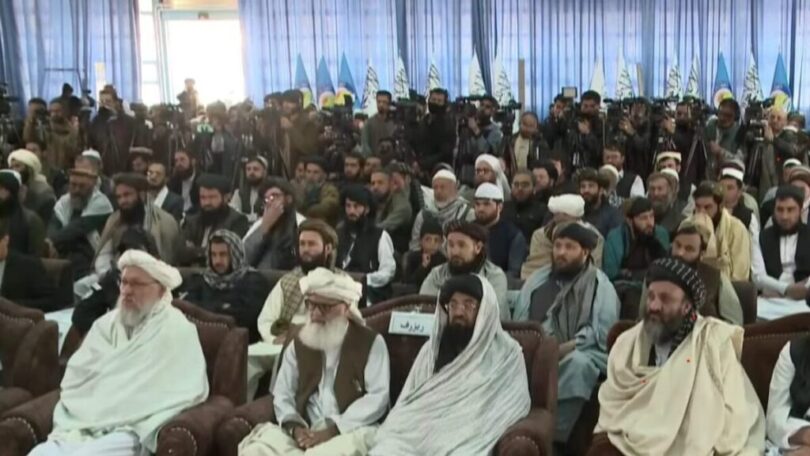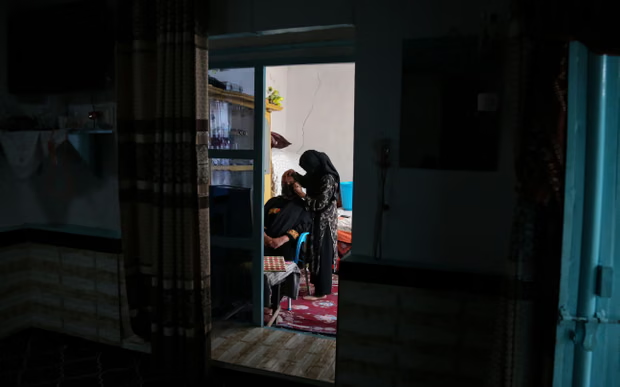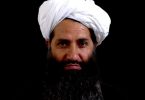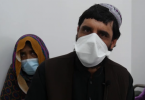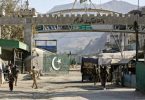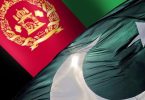KABUL (Amu tv): The Taliban have tightened restrictions on women, journalists and civil society nearly four years after returning to power, worsening Afghanistan’s humanitarian crisis and fueling displacement, Human Rights Watch said Tuesday.
The rights group said in a statement that the Taliban continue to bar girls from secondary school and university, restrict women’s employment and freedom of movement, and enforce rules on dress and behavior through local committees. Enforcement measures include workplace raids, mobile phone inspections and public checkpoints, HRW said.
“People have been detained for playing music, wearing hijabs deemed inappropriate or working in mixed-gender environments,” the HRW said. Women face further limits when required to travel with a male relative, a rule that has also restricted their access to health care and humanitarian assistance.
The International Criminal Court last month issued arrest warrants for Taliban leader Haibatullah Akhundzada and Chief Justice Abdul Hakim Haqqani, accusing them of crimes against humanity for gender persecution.
Human Rights Watch said rights violations have been compounded by a worsening humanitarian situation. Nearly two million Afghans have been expelled from Iran and Pakistan since 2021, while Germany and the United States have also begun deportations. Many deportees had lived abroad for years, the group said, adding that mass returns have strained already limited aid inside Afghanistan.
The HRW also cited donor cuts, noting that US assistance — once 40 percent of Afghanistan’s aid budget — was sharply reduced in 2025 under the Trump administration, leading to the closure of more than 400 health facilities. The United Nations estimates that 23 million people require food aid this year, with malnutrition especially severe among children.
As of July, the UN Office for the Coordination of Humanitarian Affairs (OCHA) reported that more than 400 health facilities have closed due to lack of funds, much of which had come from donor governments’ official development assistance.
Domestic media outlets have come under increasing pressure, with Taliban regulations banning images of people and prohibiting content deemed “against Islam.” Journalists told Human Rights Watch they self-censor to avoid retaliation.
Rights groups have called on the U.N. Human Rights Council to establish an independent accountability mechanism to document violations, but Human Rights Watch said international action remains limited.
UN member countries have for four years failed to take effective action to end the egregious rights violations occurring in Afghanistan, Human Rights Watch said. It added that the European Union should propose the creation of a comprehensive accountability mechanism for Afghanistan in the annual resolution it will present to the UN Human Rights Council for adoption in September.
“The fourth anniversary of the Taliban’s takeover is a reminder of the severity of the abuses,” said Fereshta Abbasi, the group’s Afghanistan researcher. “Governments should press the Taliban to end their violations while addressing Afghanistan’s humanitarian crisis.”

